
Soothing Solutions: Top CBD Picks for Dogs with Skin Allergies
|
|
Time to read 8 min
|
|
Time to read 8 min
In this article, we will discuss the following:
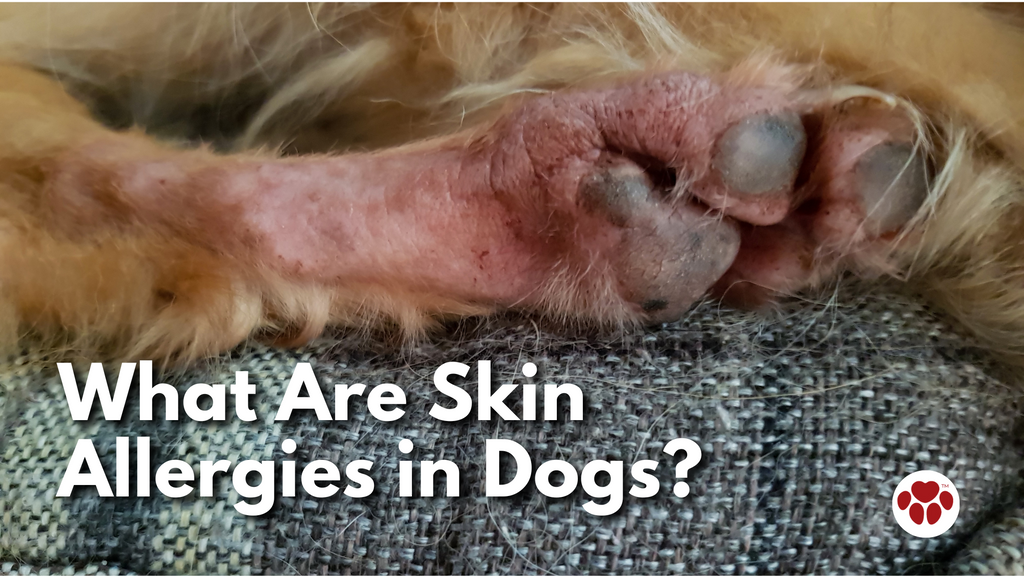
Skin allergies in dogs refer to adverse reactions in a dog's skin caused by hypersensitivity of the immune system. These allergies can present themselves in various ways, such as itching, redness, inflammation, and in severe cases, even hair loss.
The immune system of the dog becomes overactive, reacting excessively to typically harmless substances. If left untreated, skin allergies can significantly impact a dog's quality of life, leading to discomfort, infections, and potential secondary issues.
Therefore, recognizing the signs early and seeking proper treatment is crucial in managing these conditions and ensuring your furry friend's well-being (Dopierała and Andraszek, 2019).
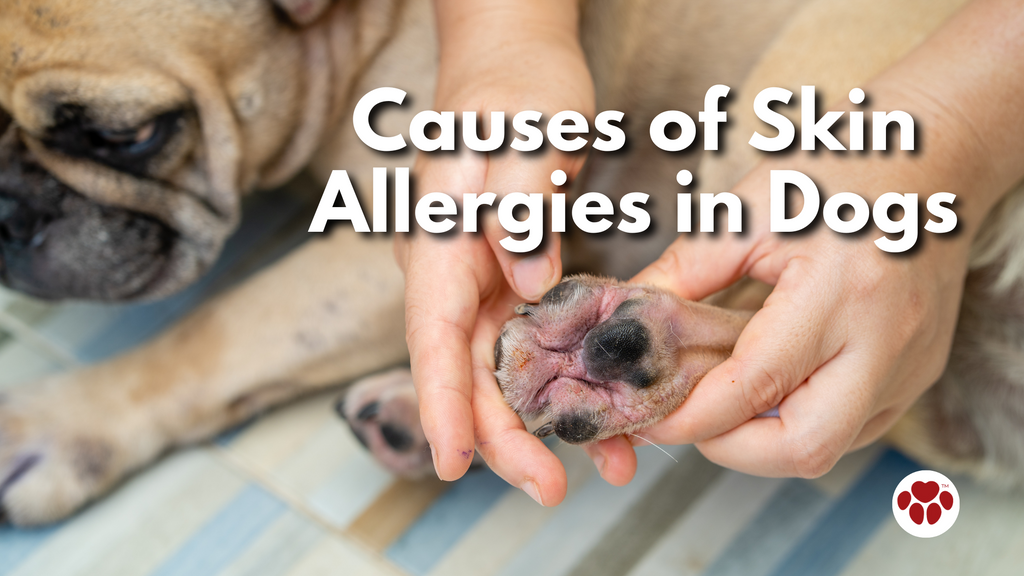
Skin allergies in dogs can stem from various sources, including environmental factors, food sensitivities, and external irritants.
Flea allergy dermatitis (FAD) is a common culprit of skin allergies in dogs, triggered by the saliva of fleas causing intense itching, redness, and hair loss in affected areas, most commonly around the base of the tail, groin, and hind legs.
When a dog with flea allergy dermatitis is bitten by a flea, the immune system overreacts to the proteins in the flea saliva, causing an allergic response that results in irritation and inflammation of the skin (Dryden, 2022).
Consulting a veterinarian is crucial for accurate diagnosis and tailored treatment plans, which may involve flea control measures, topical steroids, antihistamines, and sometimes antibiotics to address secondary skin infections.
Food allergies can also play a significant role, with proteins like beef, chicken, dairy, and wheat often being the culprits. Food allergies in dogs can manifest as skin issues due to adverse reactions to specific ingredients in their diet, necessitating dietary adjustments for relief.
However, determining the exact triggers behind these allergies can be a challenging task for pet owners, as the symptoms of food allergies often overlap with other dermatological conditions (Freeman, Linder, and Heinze, 2017).
Common signs of food allergies in dogs include:
These can lead to discomfort and inflammation. To manage food allergies in dogs, consulting a veterinarian is crucial to conduct proper diagnostic tests and develop a suitable treatment plan tailored to the specific needs of your furry companion.
Environmental allergies in dogs can instigate skin allergies, with triggers like pollen, dust mites, or mold spores leading to dermatitis and immune system responses (Lehtimäk, et al, 2018). Exposure to such allergens can cause intense itching, redness, and inflammation of the skin, prompting dogs to excessively scratch or chew their fur.
Over time, this can result in open sores, infections, and hair loss, impacting the overall well-being of the pet. It is crucial for pet owners to seek professional guidance from veterinarians to diagnose and manage these allergies effectively.
Through a combination of medical treatment, allergen avoidance, and possibly dietary modifications, dogs can experience relief and improved skin health.
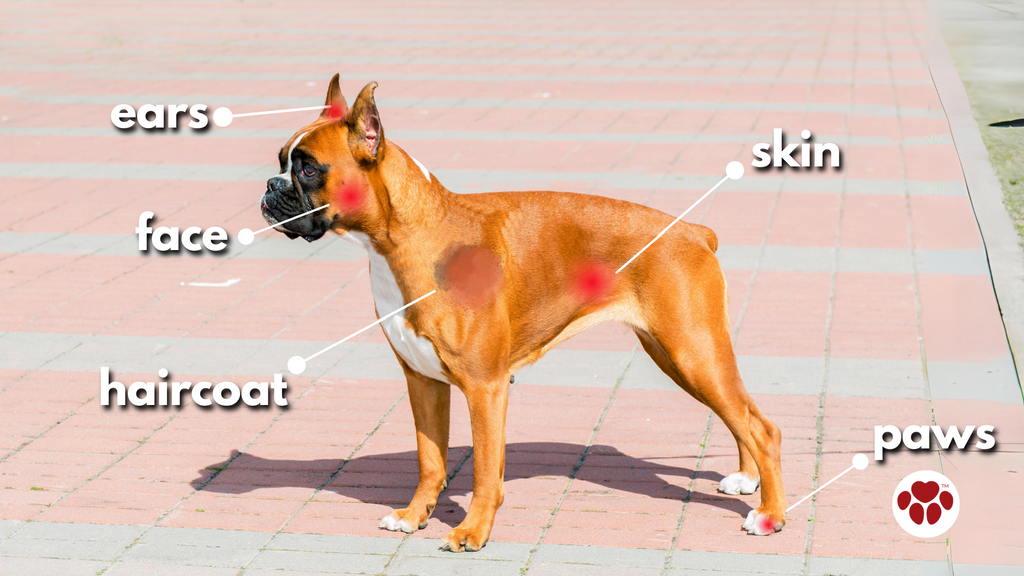
Recognizing skin allergies in dogs involves observing symptoms like:
You may notice red bumps or sores on the skin, which can lead to secondary infections if left untreated. It is essential to pay attention to any changes in your dog's skin texture or coloration, as these could be indicative of underlying allergic reactions.
Excessive scratching and licking are telltale signs of skin irritation in dogs, indicating discomfort and potential underlying skin issues that may require attention .
When dogs excessively scratch and lick their skin, it can lead to further complications such as itchiness and redness due to irritation. This behavior can also result in open wounds and sores, making the skin vulnerable to infections (Morelo, 2018).
It is crucial for pet owners to observe and address these symptoms promptly to prevent the condition from worsening. Proper treatment, which may include medicated shampoos, and antihistamines can help alleviate these discomforting symptoms and improve the overall well-being of the dog. If symptoms persist or worsens, you might be doing something wrong. Consult your veterinarian.
Red, inflamed skin in dogs is a visible manifestation of skin irritations and inflammation, signaling potential allergic reactions or dermatological conditions. When a dog's skin becomes red, it is often a clear indicator that something is wrong.
Redness (rubor) is one of the five cardinal signs of inflammation along with swelling (tumor), heat (calor), pain (dolor) and loss of function (functio laesa). This visible symptom can be caused by a variety of factors, such as environmental allergens, food sensitivities, parasites, or bacterial/fungal infections (Coatsworth, 2010).
It is crucial for pet owners to pay attention to changes in their dog's skin as it can lead to discomfort and pain for the animal. Red, inflamed skin should prompt immediate evaluation by a veterinarian to determine the underlying cause and initiate an appropriate treatment plan.
Hair loss in dogs can indicate underlying skin ailments or conditions, necessitating a holistic approach that includes natural ingredients for skin health restoration. Common skin ailments such as allergies, infections, parasites, or hormonal imbalances can often manifest through hair loss. Addressing these underlying skin conditions is crucial not only for the aesthetic appeal but also for the overall well-being of your furry friend. Read about "Understanding CBD Oil for Dogs".
Opting for holistic approaches with natural ingredients like CBD Happy-Furever™ Oil can offer a gentle and effective solution to restore your dog's skin health. Natural ingredients like CBD oil, aloe vera, oatmeal, coconut oil, and essential oils can help soothe irritated skin, promote healing, and nourish the coat from within, offering long-term benefits without the risk of harsh chemicals.
Hot spots, also known as acute moist dermatitis, are areas of intense irritation and inflammation in the skin (Palmer, 2018). Dogs with hot spots may benefit from targeted skin treatments utilizing CBD for its soothing properties.
Hot spots can arise due to a variety of reasons such as allergies, insect bites, skin infections, or excessive licking and scratching. Common treatments for hot spots include topical medications, anti-inflammatory creams, and antibiotics if there is an underlying bacterial infection.
Pet owners are increasingly turning to CBD oil as a natural alternative, known for its anti-inflammatory, analgesic, and calming effects on dogs' skin (Marsella, et al, 2019). By applying CBD topically to the affected areas, it can help reduce redness, swelling, and discomfort, promoting faster healing without potential side effects often associated with traditional medications.
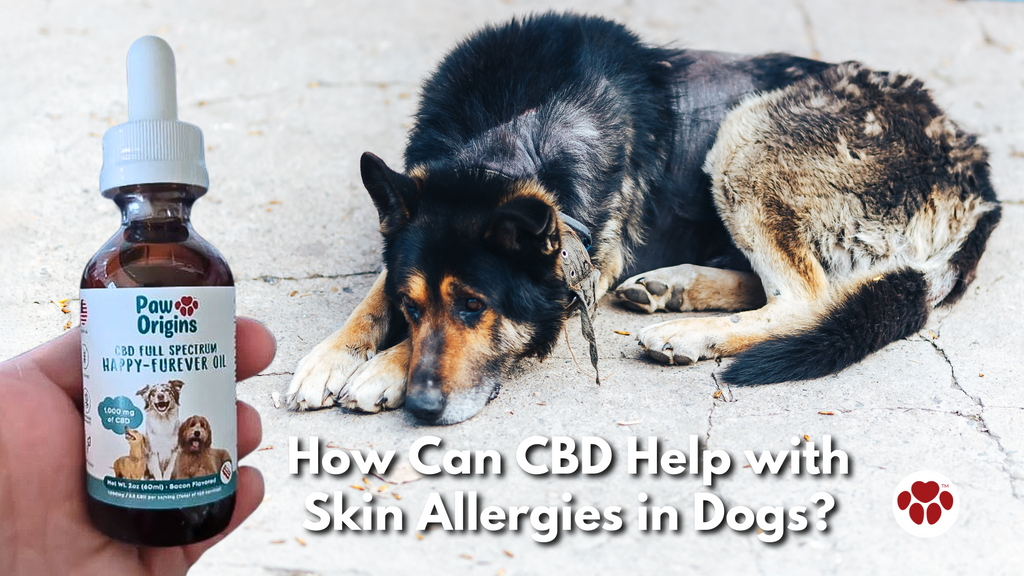
CBD offers potential benefits for dogs with skin allergies by promoting skin health, supporting the immune system, and providing soothing solutions for common skin issues. A key reason why CBD is gaining popularity in the pet care industry is its ability to act as a natural anti-inflammatory, helping to reduce redness, itching, and irritation on a dog's skin (Marsella, et al, 2019).
CBD's antioxidant properties play a crucial role in protecting the skin from damage caused by environmental stressors, such as UV rays and pollutants (Casares, et al, 2019). This can help in maintaining a healthy and vibrant skin appearance for your furry companion. CBD's calming effects can aid in alleviating stress-related skin conditions in dogs, further contributing to their overall comfort and well-being.
For dogs with skin allergies, top-rated CBD companies offer a range of products such as CBD oil, CBD balms, and CBD shampoos specifically designed to provide skin relief and promote canine skin health. These CBD products are formulated with high-quality CBD extract, known for its anti-inflammatory properties, which can help reduce itching and irritation caused by allergies (Baswan, et al, 2020).
CBD tinctures can be easily administered orally, making them a convenient option for pet owners looking to provide quick relief to their furry companions. On the other hand, CBD balms and shampoos offer targeted relief by directly soothing the affected skin areas, promoting healing and rejuvenation.
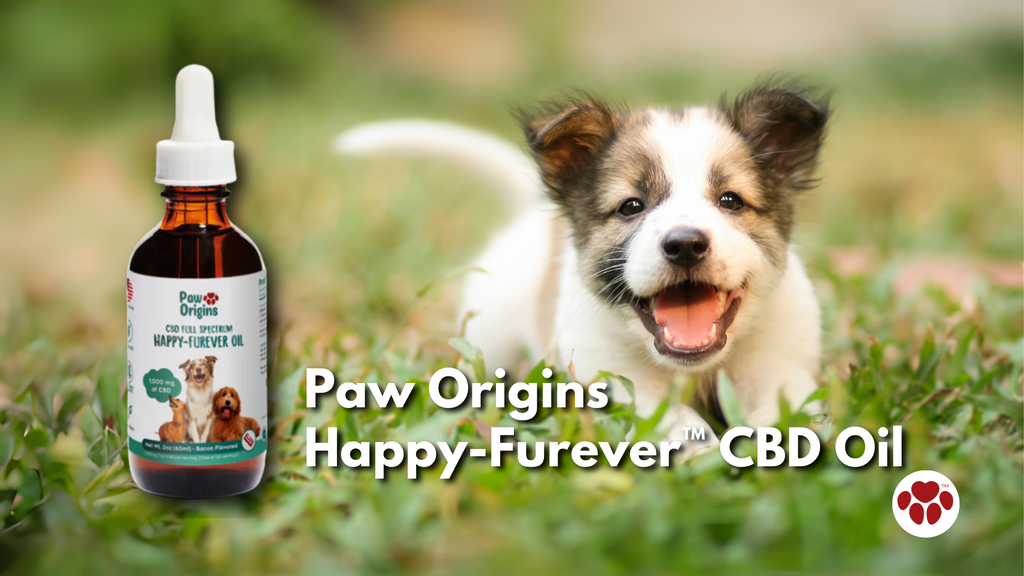
Paw Origins Happy-Furever™ CBD Oil is a premium CBD oil for dogs, formulated to address skin ailments and provide holistic wellness with high product quality standards. One of the standout features of Paw Origins Happy-Furever™ CBD Oil is its potent blend of organic CBD extract, sourced from premium hemp plants.
This ensures that your furry companion receives the full benefits of CBD without any harmful additives or artificial ingredients. This CBD oil is rich in essential nutrients and antioxidants that promote healthy skin and support overall well-being. Another advantage of this CBD oil is its versatility in usage.
Whether your dog is struggling with dry, itchy skin, hot spots, or inflammation, this oil can provide relief and help improve their skin condition gradually. The product comes in a 60ml bottle with 1000mg CBD.
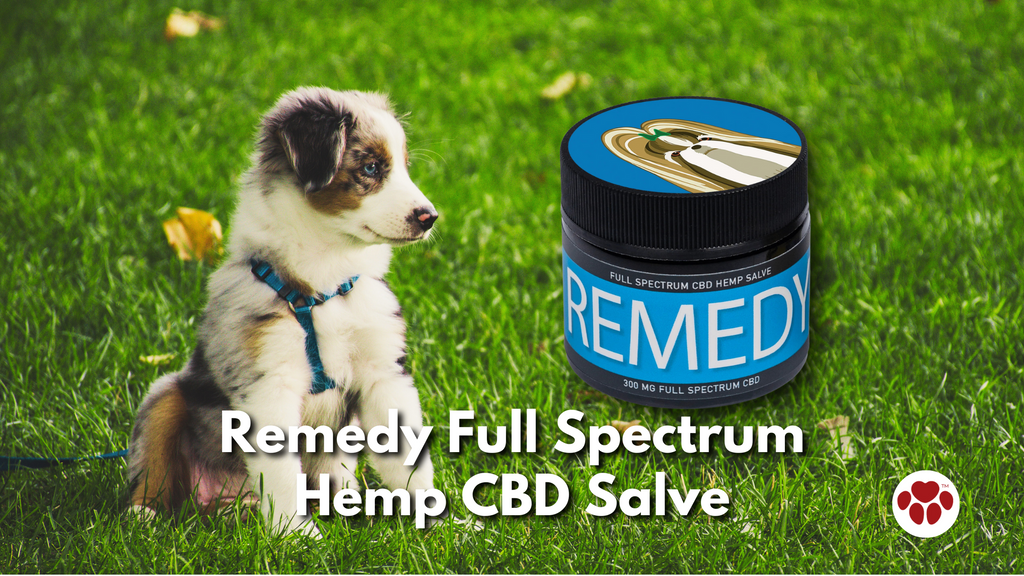
Remedy Full Spectrum Hemp CBD Salve for dogs is an effective topical cream designed to enhance skin health and provide targeted treatment using CBD isolate for specific skin conditions. It also has peppermint, eucalyptus, and coconut oil.
The product comes in a 2 oz jar (300mg CBD) and 4 oz jar (600mg CBD). It can be applied to your dog’s affected skin 2-3 times a day as needed to soothe the skin, restore moisture levels, support skin regeneration, and promote overall skin health.
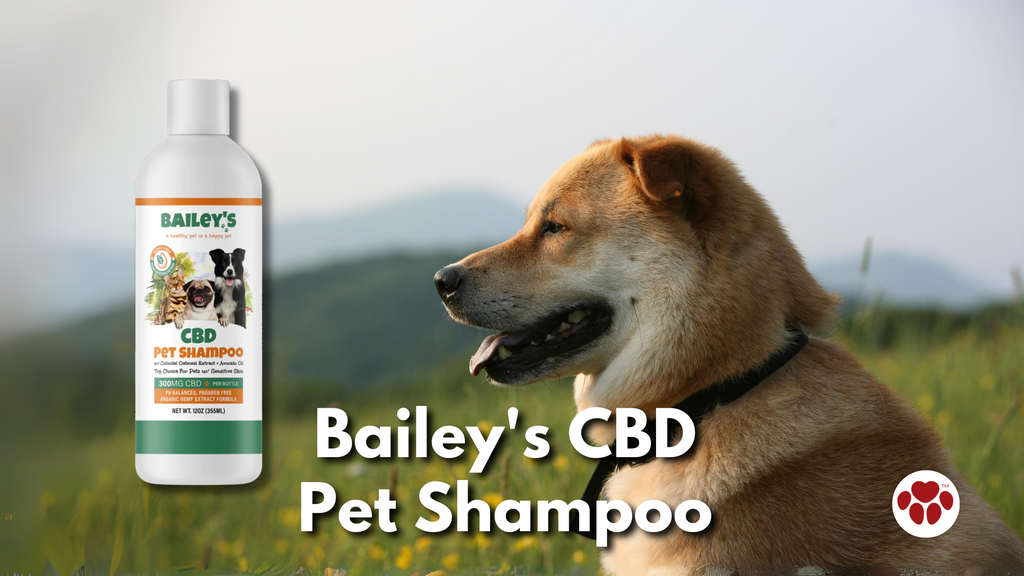
Bailey's CBD Pet Shampoo For Dogs is a specialized shampoo infused with CBD to address skin irritations, promote joint health, and deliver optimal CBD potency for therapeutic bathing experiences. Not only does it provide relief for skin irritations and joint pain, but it also offers a gentle cleansing experience.
This product comes in a 355ml bottle with 300mg CBD, organic aloe, provitamin B5, avocado oil, and colloidal oatmeal extract giving your dog a soothing and beneficial bath.
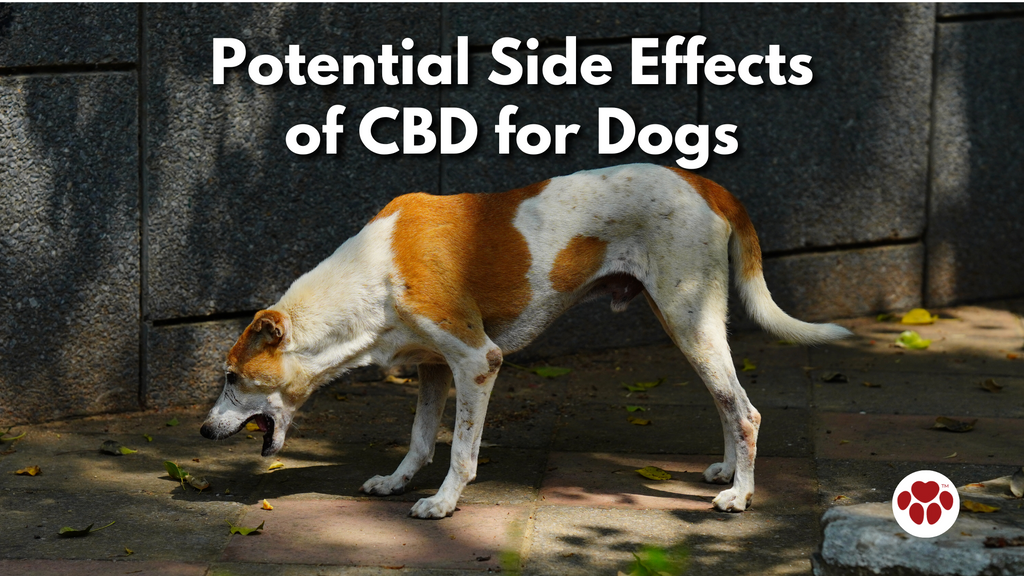
While generally safe, CBD products for dogs may have potential side effects such as drowsiness, dry mouth, or gastrointestinal issues such as diarrhea or vomiting, necessitating careful monitoring after administering CBD Oil or other products (Borges, et al, 2020).
It is essential for pet owners to be aware of these potential effects so they can take proper precautions. To monitor your dog's reaction, it is recommended to start with a low dose and observe closely for any negative responses. If any side effects persist or worsen, it is advisable to consult a veterinarian promptly for guidance.
However, not all veterinarians are open to this kind of alternative supportive care, so pet parents should take full responsibility when opting to give their dogs any CBD products.
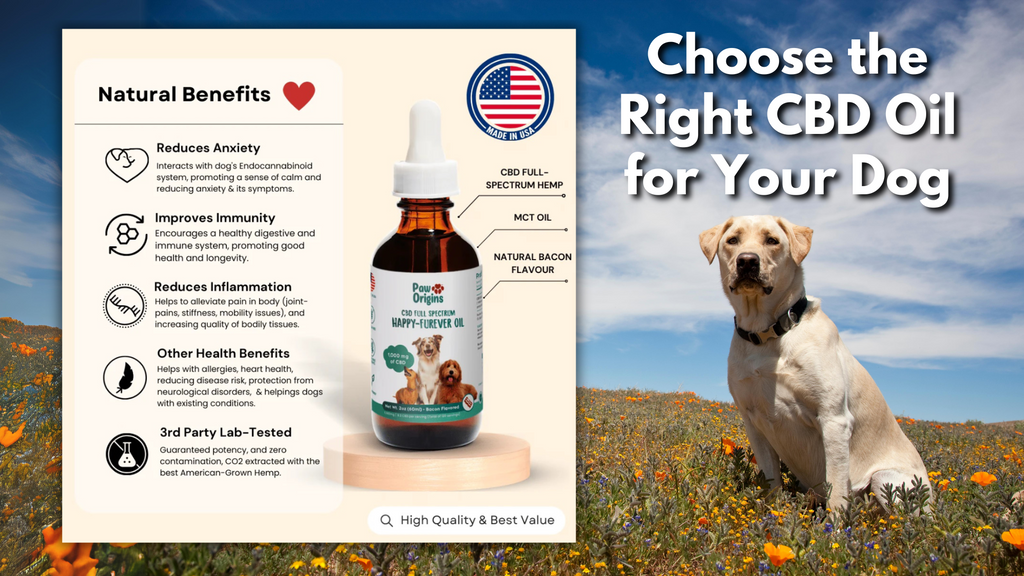
Selecting the best CBD product for your dog involves considerations such as product quality, brand reputation, and the source of hemp extract used in the CBD oil formulation.
When looking for a top-notch CBD oil for your furry friend, quality assurance should be a top priority. Opt for products that undergo rigorous testing by third-party laboratories like CBD Happy-Furever™ Oil to ensure potency and purity.
Reputable brands often provide transparent information about their manufacturing processes, source of ingredients, and are willing to share lab reports demonstrating the quality of their products. The origin of the hemp used is crucial as well in determining the effectiveness and safety of the CBD oil.
